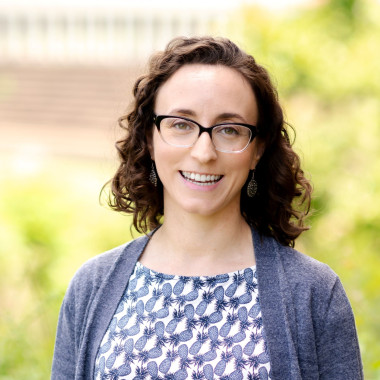Alternative Grading Institute Facilitators

Derek Bruff
University of Virginia

Emily Pitts Donahoe
University of Mississippi

Drew Lewis
Center for Grading Reform

Lindsay Masland
Appalachian State University

Michael Palmer
University of Virginia

Adriana Streifer
University of Virginia
- Derek Bruff is an associate director at the Center for Teaching Excellence, working remotely from his home outside Nashville, Tennessee. Derek is involved in a number of programs and projects, including supporting the Faculty AI Guides program and serving as an editor for external contributions to Teaching Hub. Derek directed the Vanderbilt University Center for Teaching for more than a decade, where he helped faculty and other instructors develop foundational teaching skills and explore new ideas in teaching. Derek produces the Intentional Teaching podcast and newsletter, which gives him an excuse to interview educators who are making thoughtful changes to their grading practices.
- Dr. Emily Pitts Donahoe is the associate director of instructional support at the Center for Excellence in Teaching and Learning and lecturer in Writing and Rhetoric at the University of Mississippi. At UM, she works with instructors across disciplines to develop equitable and evidence-based pedagogies that support all students. She is the author of a blog and Substack newsletter called Unmaking the Grade, which chronicles her experiences with alternative grading practices, and she serves on the organizing committee of The Grading Conference. Her forthcoming book, Collaborative Grading: A Practical Guide (University of Oklahoma Press), will provide a step-by-step guide to designing and teaching a collaboratively graded course. A second forthcoming book co-authored with Joshua R. Eyler, How to Grade: Alternative Models for the College Classroom (Princeton University Press), will serve as a guide to a variety of alternative grading practices in higher ed.
- Drew Lewis is an independent consultant and the director of research for the Center for Grading Reform. For the last decade he has used standards-based grading in his mathematics courses, and developed a research program investigating how this and other alternative grading schemes support productive mindsets in students. He has served on the organizing team for the Grading Conference since 2021, and frequently works with faculty at institutions around the country on aligning their grading practices with their pedagogical values.
- Dr. Lindsay Masland is the executive director of the Center for Excellence in Teaching and Learning for Student Success at Appalachian State University, where she leads a team of 10 in providing programming designed to support teachers in higher ed. Also a professor of Psychology in her 15th year, Lindsay has taught courses in statistics, educational psychology, and pedagogy. She first began to dabble with aspects of alternative grading when she learned about Universal Design for Learning (although she didn’t realize she was doing alternative grading at the time!) After hearing one of her students talk about how grades were impacting their mental health, Lindsay converted all of her courses to collaborative grading schemes and never looked back!
- Michael Palmer is professor and Barbara Fried director of the University of Virginia’s Center for Teaching Excellence. He leads a dynamic team committed to supporting efforts to expand equity-informed and inclusive teaching praxis; improve students’ learning, engagement, and sense of belonging; and increase instructors’ joy in teaching. Michael currently teaches 1st- and 2nd-year seminars on the science of learning, pedagogy, “living your best college life,” and infinity and uses variations of specifications grading in each. Originally inspired by Linda Nilson’s book, Specifications Grading: Restoring Rigor, Motivating Students, and Saving Faculty Time (and lots a caffeine from a local coffee house), he has published a readiness assessment tool for specifications grading, studies exploring students’ perceptions of specs grading, and a soon-to-be in the wild grading scheme anatomy capable of characterizing (and helping instructors improve) any grading scheme.
- Adriana Streifer is an associate professor and associate director at the University of Virginia’s Center for Teaching Excellence. At UVA, she leads course design programs that support instructors in developing inclusive and learner-centered courses, and she runs a teaching certificate program for graduate students who wish to cultivate reflective, intentional pedagogical practices. Adriana teaches courses in English literature, writing, and the theory and practice of teaching in higher education. About eight years ago, she adopted specifications grading after realizing that traditional grading methods neither accurately measure learning nor foster an equitable, inclusive environment for students. Since then, she has published several articles on specifications grading and facilitated workshops and institutes for faculty who wish to develop their own alternative grading practices.
